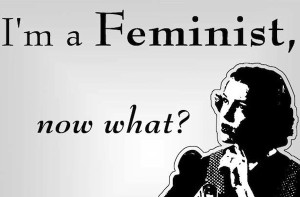Before embarking on Yeats’s “A Prayer for my Daughter,” I originally thought it sweet that Yeats felt an urge to “dedicate” a poem to his daughter. After further reading, I realize the morphed perspective Yeats seems to take—not only in terms of his daughter, but in his assumed perception of Irish womanhood. While the piece begins with the juxtaposition of a violent, “howling” storm contrasted with his peaceful, sleeping daughter, the reader soon awakens to a higher degree of critical awareness that is unsettling to any feminist critic.
In stanza four, Yeats calls to mind “that great queen that rose out of the spray” (Aphrodite, most likely) and “Helen [who] found life flat and dull,” (Helen, who is often painted as the “indirect cause of the Trojan war”). In doing so, he seems to attempt to warp the narrative of female mythology to embody an over-all sense of disruption and folly. Embedded in Yeats’s fourth stanza seems to be the implication that throughout history (and suggestively, in the life of Yeats himself) women only contribute the façade of alluring beauty that inevitably leads to misfortune (here we go again with resentment toward Maud Gonne).
In this vein, it seems to me that Yeats’s “A Prayer for my Daughter” is code for “I wish I had a son Instead.” Am I taking this too far? Had I been the daughter of Yeats, I would be disheartened to read that my opinionated, impassioned father wished me to believe that “opinions are accursed.” In other words, Yeats does not believe that his daughter is capable of generating opinions worthy of contemplation or engagement??? This line of thought leads me to pose a question: would Yeats have written the same poem had his child been male? I’m not convinced.
Taking my argument further is the notion of traditional Irish womanhood—the current by which Yeats seemingly supports (and even encourages) woman’s quiet, grey role in the Irish home. For example, the poem’s last stanza: “may her bridegroom bring her to a house/ Where all’s accustomed.” One faulty element to these lines is the presupposed identity that Yeats projects onto his infant daughter: she will be attracted to a man, will marry said man, will make an “accustomed” and “ceremonious” home with this man, her “bridegroom”… These lines also seem to uphold the notion that women cannot successfully exist in society as independent beings—they need both an “accustomed house” and a “bridegroom” to be admissible in the mouth of societal dogma…
I can see how Yeats’s misfortunate experiences with Maud Gonne could influence his view of women… but it’s no excuse in my eyes. It is my contention that by writing his poem—and overtly assigning it to his own daughter—Yeats dangerously propagates a misogynistic view of women, belittling his own child in the process.

